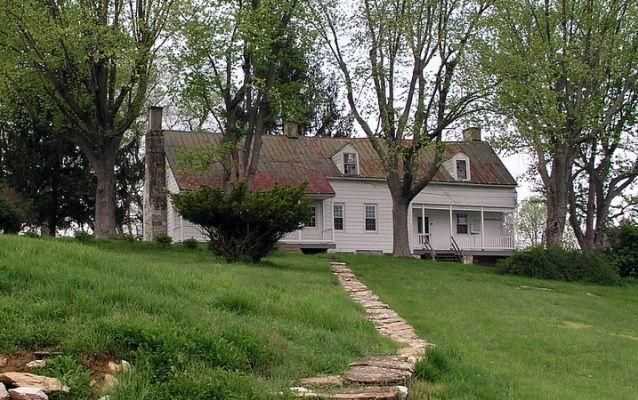Last updated: March 21, 2021
Place
Roulette Farm

Civil War Trust
Historical/Interpretive Information/Exhibits
At the time of the Battle of Antietam, the farm was home to William and Margaret Roulette and their five children. The Roulettes did not own slaves, but did employ Nancy Camel, a former slave, as a domestic servant and a 15-year-old African American man named Robert Simon also resided on the property, working as a farm hand.
During the battle, thousands of Union soldiers from Gen. William H. French's division moved across the Roulette farm and even through the buildings on their way to the fighting along the Sunken Road. Damage to the Roulette house, property and crops was extensive. A shell even knocked over their beehive, causing temporary chaos among the inexperienced troops of the 130th Pennsylvania Infantry.
In the aftermath of battle, the Roulette barn was used as a field hospital for many of the Union wounded during the Sunken Road fighting and 700 soldiers were buried in mass graves in his fields. One eyewitness, Chaplain Henry S. Stevens of the 14th Connecticut Infantry, wrote of the damage to the house: "Bullets pierced it on the day of battle, and one huge shell tore through the west side, a little above the floor, and going through the parlor in an upward course passed through the ceiling and a wall beyond and fell harmless amid a heap of rubbish it had created, where we saw it many times that day. During the battle the rooms were stripped of their furnishings and the floors were covered with the blood and dirt and litter of a field hospital..."
Despite filing claims with the federal government for damages to his property totaling more than $3,500, William Roulette received no compensation for his home and outbuildings, though he did received a payment of $371 for a hospital claim.
Roulette Farmstead Cultural Landscape
